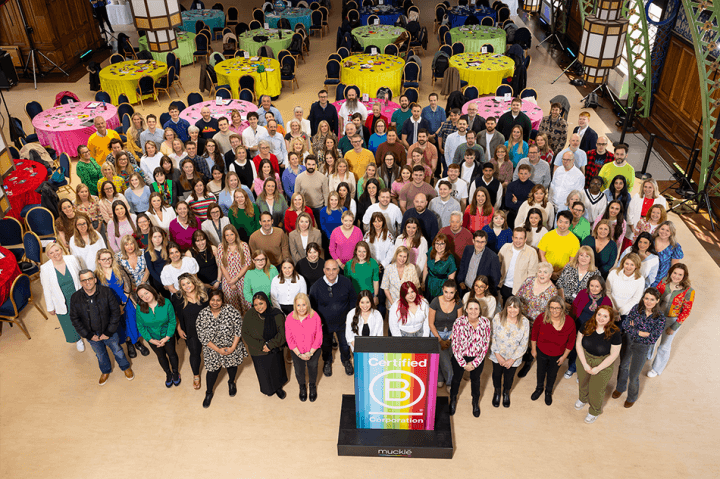Levelling the playing field

Career opportunities are not spread equally across the country, with the North East being one of the lowest-performing regions in terms of social mobility. But regional businesses can make a huge difference to this and we are striving to do so.
Social mobility links an individual’s professional status with that of their background or circumstances. For example, if someone from a working-class background has a professional job, they are said to have achieved a high level of ‘upwards’ social mobility.
While this sounds great in theory, these opportunities are still very dependent on where you live, with research from the Sutton Trust painting a stark picture of the regional divide. Perhaps unsurprisingly, while all of the top 20 constituencies found to have high levels of social mobility are in London, some of the lowest-performing constituencies are in the North East, such as Stockton North and Middlesbrough South.
So, what can we do about it?
Making an impact
For us, improving opportunities for all is a priority. As the first law firm in the North East and Cumbria to achieve B Corp certification for our commitment to using ‘business as a force for good’, we have long championed the importance of breaking down barriers to opportunity.
Hugh Welch, senior partner and head of our ESG work, thinks businesses have a vital part in this: “While individuals and the education system have an important role to play, businesses are in arguably one of the most powerful positions to make a difference.
“We recognise that as a profitable law firm, we’re in an extremely privileged position – but we’re also in a position to use that privilege to make a difference.”
Hugh explains further: “For many years, our focus has been on four key areas: supporting young people, overcoming disadvantage, improving social mobility and supporting causes close to the hearts of our people. It is so important to us to not only improve social mobility in the legal sector, but to improve it for our whole region, regardless of sector.”
To do this, we adopt a multi-faceted approach, through a range of recruitment strategies, events, charitable grants and volunteering, to name but a few.”
From classroom to career
For a sector like law, which is still seen as an “it’s not what you know, it’s who you know” kind of industry, improving social mobility is easier said than done. Hugh agrees: “The majority of professional services, which includes the legal sector, still seems to be slightly elitist and out of reach for young people who lack the same connections as their peers.”
The Tees Valley boasts a high number of professional services workers, with over 35,000 people employed in the sector. However, a lack of upward social mobility means that able young people in the region are being left behind.
Hugh thinks that recruitment is key to bridging this gap: “By adopting more inclusive hiring processes and focusing on educating the next generation, businesses can ensure their talent pools are based on potential, not background, ultimately helping increase social mobility.”
For example, in 2017, we co-founded the North East Apprenticeship Scheme, which helps young people gain a law degree without the burden of university fees. Currently, we have eight solicitor apprentices, with three having qualified so far – most recently Darlington-born Lauryn Hellewell.
That’s not to say that businesses need to create their own apprenticeship schemes to make a difference, with Hugh saying: “There are lots of charitable organisations championing greater social mobility that organisations can partner with. For example, this year Muckle has started working with Inspiration for All, a charity that links business leaders and school leaders via mentoring partnerships.”
Muckle has also revamped its Inspiring Careers programme for 2025 to focus more on high-achieving students from lower socio-economic backgrounds. The firm, along with programme partners Mortal Fools, will work with several schools with a high percentage of free school meals. This impactful programme aims to raise aspirations, build confidence, and equip young people with the practical skills they need to succeed in any future career.
Heart of the community
Hugh would suggest that recruitment should simply be part of an organisation’s overall social mobility strategy: “Whilst recruitment creates pathways for disadvantaged individuals to access opportunities they previously thought unattainable, it’s important for business to also work with charities that support social mobility. In doing so, charities can expand their services and ultimately reach more people and make even more of a difference.”
Since 2002, Muckle has donated 1% of its profits each year to the Muckle Fund at the Community Foundation and has therefore supported a range of charitable organisations. Hugh says that, as the firm is becoming more profitable each year, this support continues to grow: “We have supported eight Tees Valley charities with grant funding totalling £27,260 in the last year alone, and are exploring opportunities to support more charities that focus on social mobility with grants.”
“We’d welcome any charities that work to improve social mobility in the Tees Valley to apply for a grant via our Muckle Fund at the Community Foundation, so we can support even more young people in Teesside in advancing their careers.”
